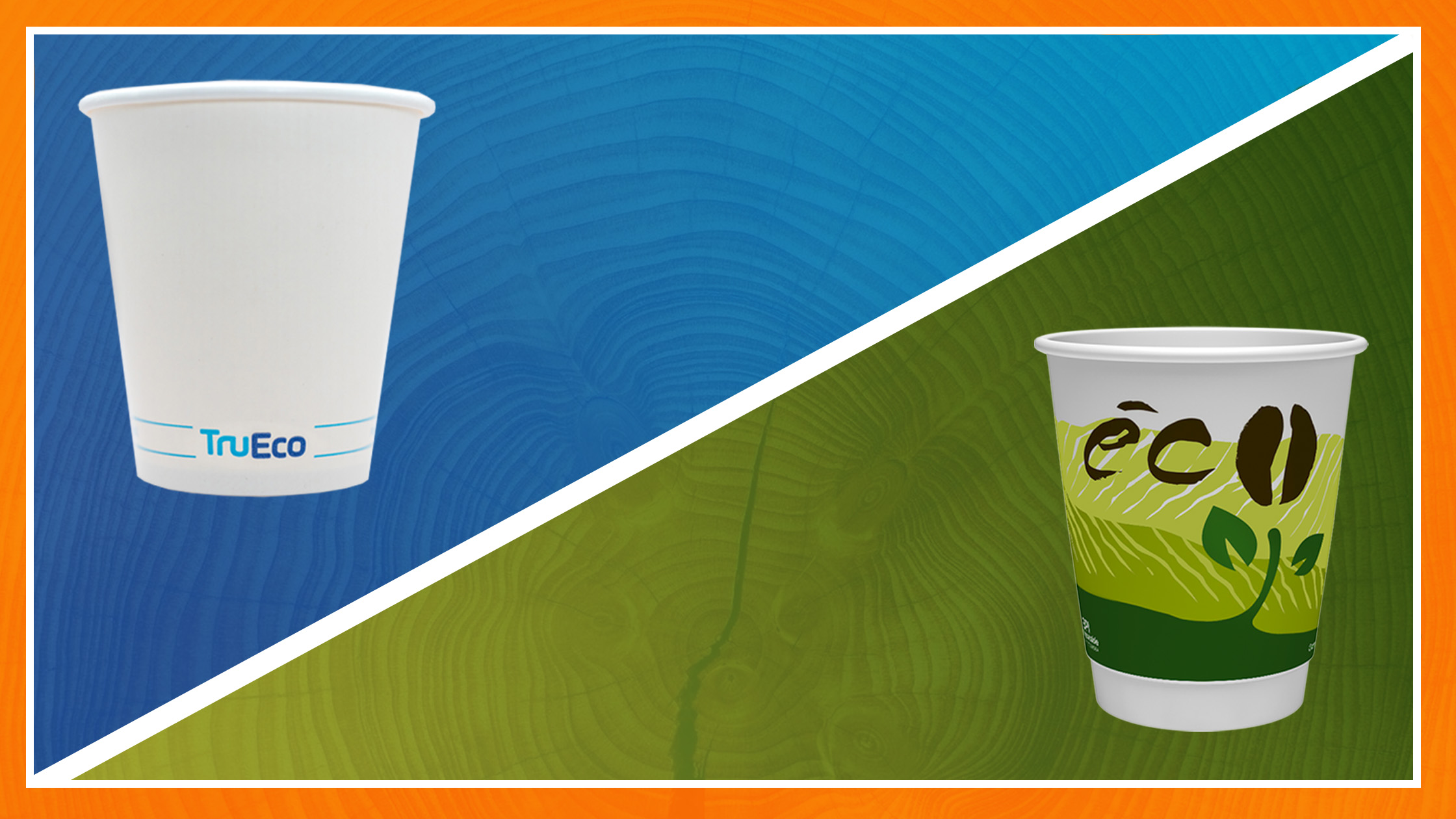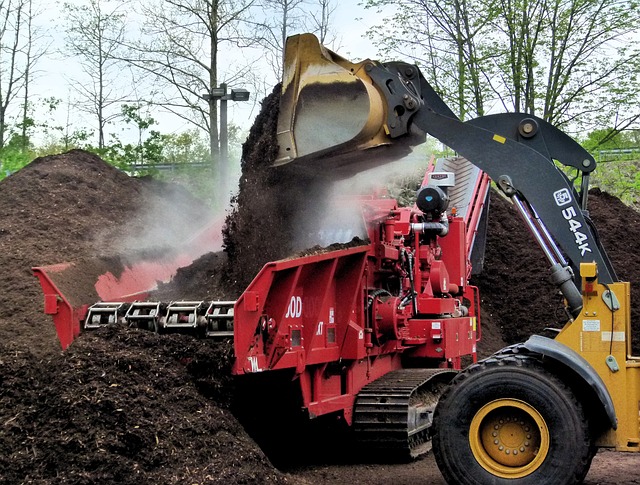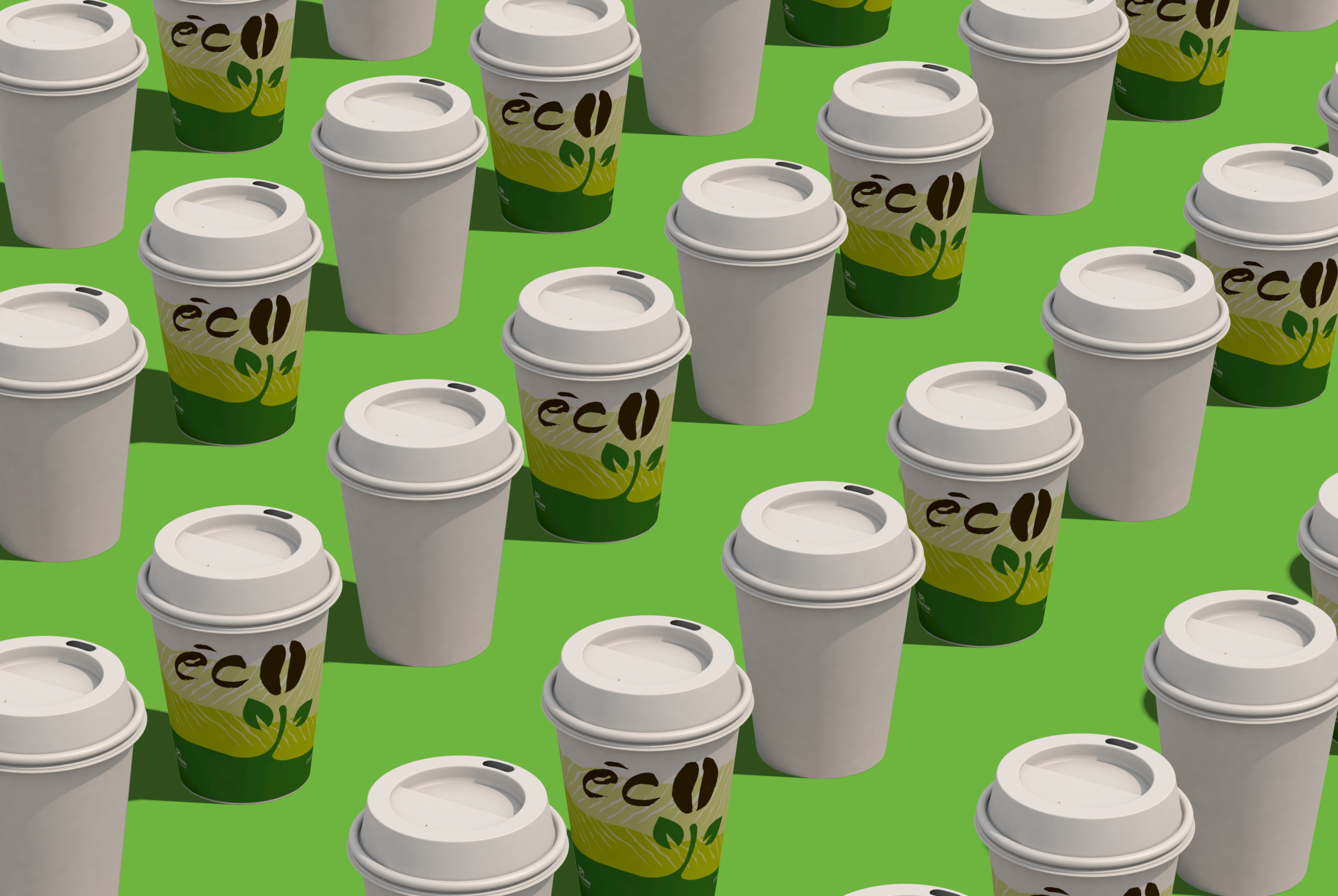 ← retour
← retour
Over the past decade, the shift towards eco-responsible choices has reshaped consumer habits and business practices alike. With growing awareness of environmental issues, individuals and organizations are increasingly seeking sustainable solutions that reduce waste and minimize ecological footprints. This trend is particularly evident in the foodservice industry, where disposable items like paper cups have come under scrutiny for their environmental impact. As a result, compostable options have emerged as a popular alternative, offering the convenience of disposables without the lasting harm of traditional plastics.
In the following lines, we will explain the differences and options for your business’s compostable cup choices. Discover how understanding these options can help you make the right choice for a more sustainable future.
To understand the value of compostable cups, it’s essential to define what “compostable” truly means. A compostable product is one designed to break down into organic matter in a composting environment, leaving no harmful residues. This process helps return nutrients to the soil, completing a natural cycle of decomposition. Compostability is typically classified into two types: industrial compostability and home compostability. Each has its unique processes, requirements, advantages, and limitations.
Industrial compostable products are designed to decompose under controlled conditions found only in industrial composting facilities. These facilities provide the necessary high temperatures (50–70°C), humidity, and microbial activity to break down materials efficiently. Key characteristics of industrial compostable cups include:

Requirements

Home compostable cups are designed to break down in backyard composting systems, where conditions are less controlled compared to industrial facilities. These cups are tailored for consumers who do not have access to industrial composting options. Key characteristics include:
Selecting the right type of compostable cup depends on several factors, including your goals, resources, and target audience. Here are some key considerations to help guide your decision:

3. Environmental Goals
Understanding the differences between industrial and home compostable cups is just the first step. Now it’s time to make things happen together:
Incorporating compostable cups into your business is not just a responsible choice but a meaningful step toward reducing environmental impact. By understanding the differences between industrial and home compostable options, you can make informed decisions that align with your sustainability goals and operational needs.
Life in Green offers solutions tailored to diverse business contexts, helping you support eco-friendly initiatives while maintaining the convenience and practicality of disposable products. Whether through Eco Cups for industrial composting or TruEco Cups for home composting capabilities, we’re here to provide the tools you need to succeed.
Make the shift today and join the movement for a greener tomorrow.